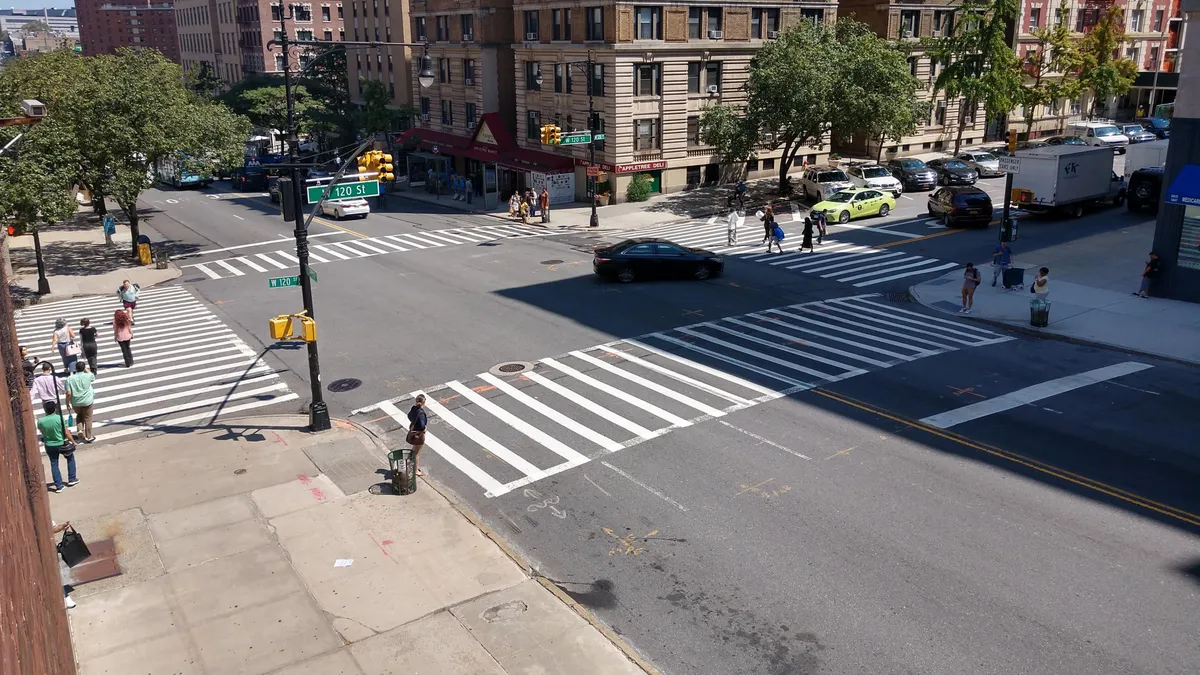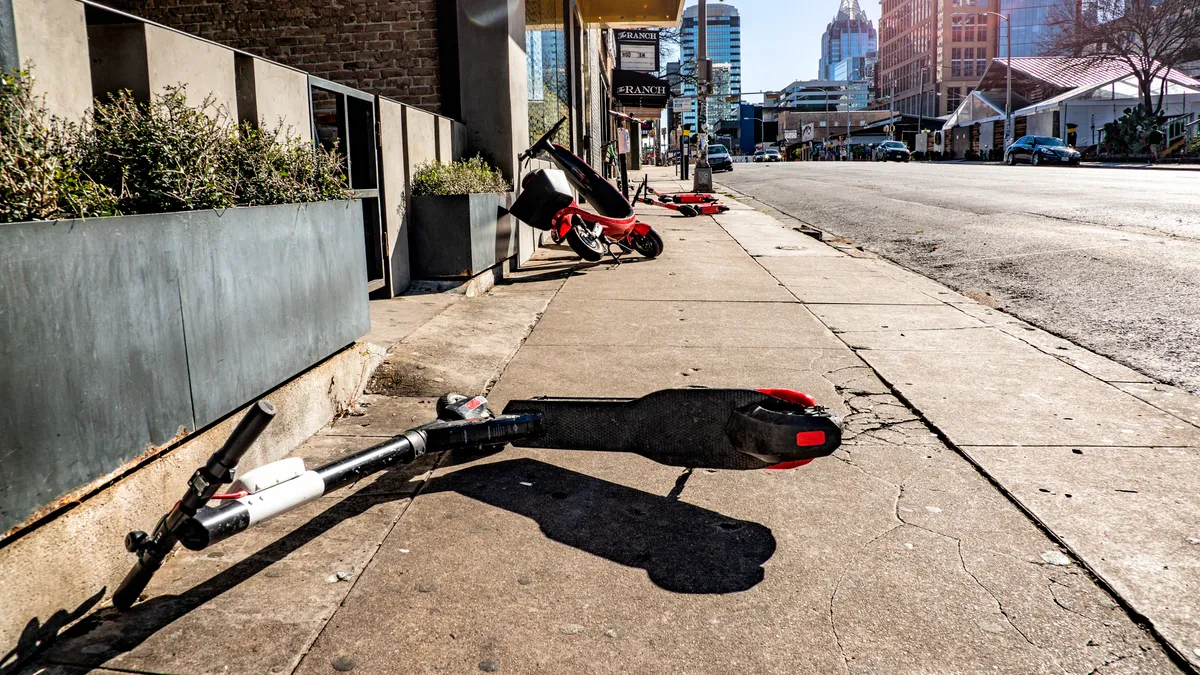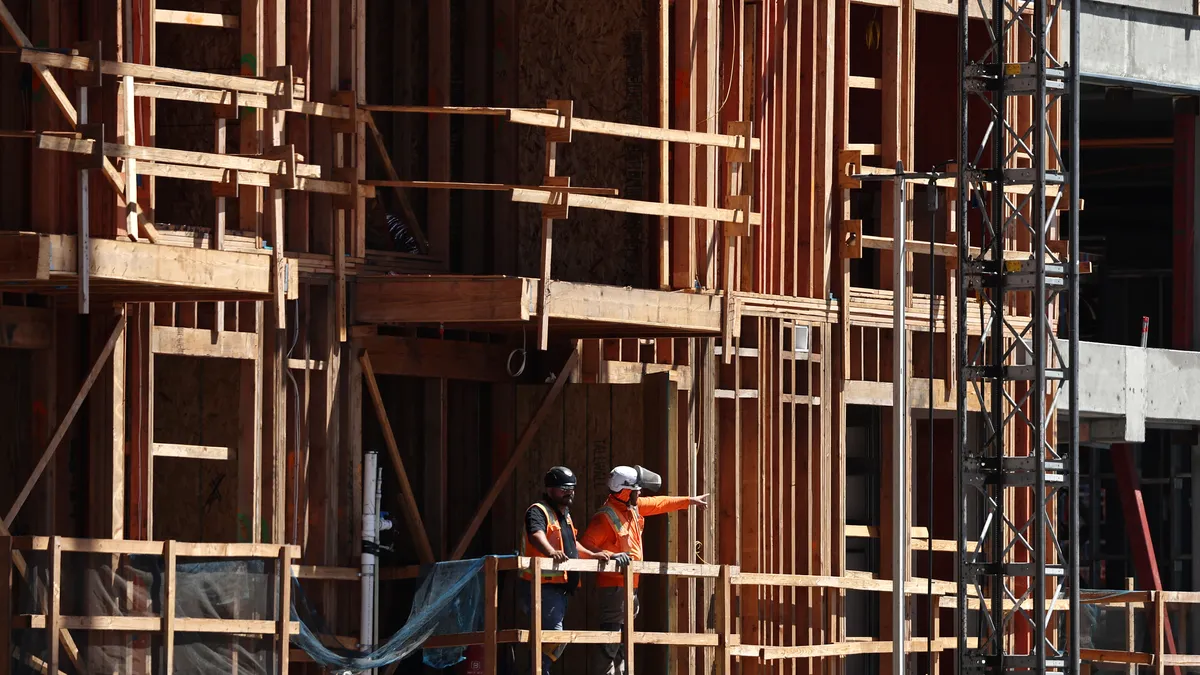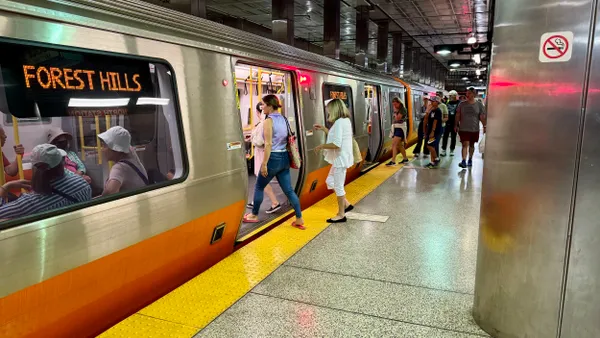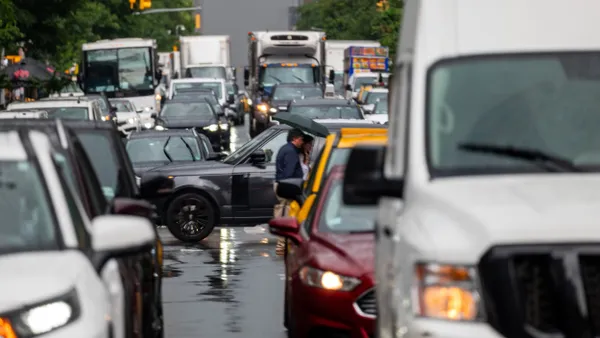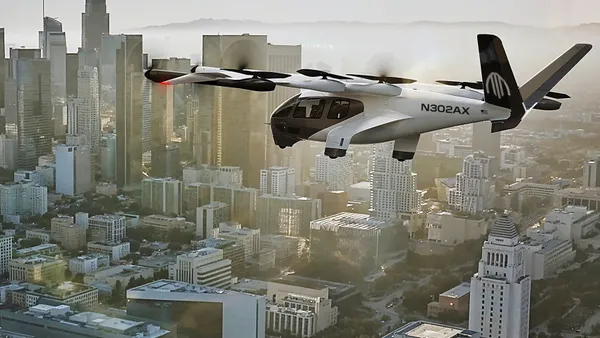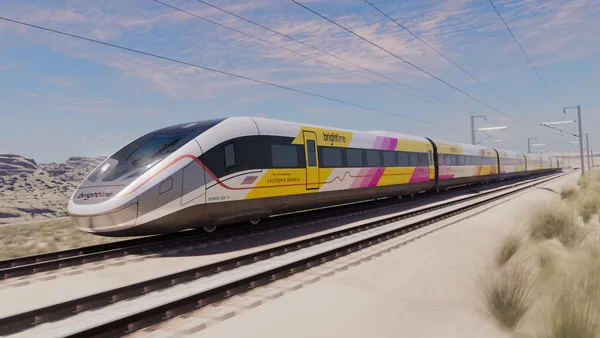Dive Brief:
- Parsons Corp. announced the 10 semifinalists in its inaugural Smart Cities Challenge, called Transforming Intersections. CEO Chuck Harrington made the announcement on stage at the CoMotion LA conference in Los Angeles on Friday.
- The 10 semifinalists in the challenge to help improve mobility and efficiency at intersections are: Anne Arundel County, MD; Austin, TX; Dubai Roads and Transport Authority, United Arab Emirates; Frontier MPO Fort Smith, AR; Manama, Bahrain; Mississauga, Ontario; Pasadena, CA; RTC Southern Nevada; Walnut Creek, CA; Westminster, CO.
- Those semifinalists will now work with Parsons' team to submit a final application, which will be judged by an independent panel of experts. A winner is expected to be named in April.
Dive Insight:
Company officials said they received dozens of applications to participate in the challenge. Andrew Liu, the company's senior vice president of smart cities, told Smart Cities Dive that it is part of Parson's strategy to find tangible problems to solve and encourage the best solutions to be piloted and scaled up.
"We don't want to go out there and be a solution that's looking for a problem," Liu said on the sidelines of CoMotion LA. "We want to really look to see what are the problems out there in the world with our clients in different cities all over the place, and see what are the commonly occurring issues and can we develop a solution around it."
As cities get smarter, they are seeking ways to refine their intersections, reduce congestion and make it safer for pedestrians and other modes of transport to move through them.
The National Association of City Transportation Officials (NACTO) released a guide earlier this year highlighting modern intersection designs, while in New York City, a wireless research testbed deployed by the National Science Foundation (NSF) and a legion of partners is testing smart intersection technology.
As cities consider how their streets and intersections should be used, they should prioritize cooperation across jurisdictional lines, and consider how to make the user experience as seamless as possible, Liu said.
"If you think about it from a smart cities perspective, all the different jurisdictions need to start working together," he said. "When you and I as motorists drive from point A to point B, we don't care that right now we're on this city road, then we get to a state highway, then a county road. We care about the journey. We're really looking at integrating it all together."
The winner will receive various prizes including a year of free services from Parsons, AWS and Verizon to get an intersection solution pilot program up and running. But Liu said that all semifinalists should benefit from working with the company's experts to refine their proposals. It could help them realize their visions even if they do not win, he said.
"We really ask them what their vision is for smart cities, what are the problems they face," Liu said. "Really challenging people to think how to prioritize what issues there are, and from there even if you're not the final winner, working with our experts, can we identify a solution that the city might be able to deploy at a later date."



